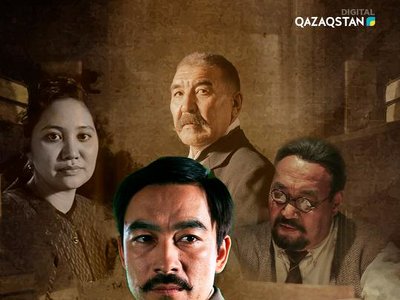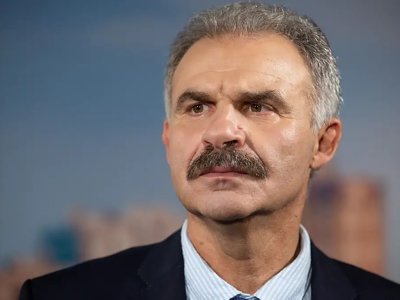Film on independence leader back on cinema screens after public outcry

A public outcry has forced cinemas across Kazakhstan to extend the run of a feature film about a 20th century Kazakh independence movement leader for another week.
The disappearance of the film from cinemas last week, just over two weeks after its release, sparked speculation of official censorship. Demand for the film shot up following the controversy, leading to packed halls for the added screenings.
The film about the writer and poet Myrzhaqyp Dulat, “Myrzhaqyp. Oyan Qazaq!” (“Myrzhaqyp. Kazakhs, Wake Up!”) was shown in cinemas from 21 September till 4 October.
Dulat was one of the founders of Alash Orda, a self-proclaimed autonomous Kazakh republic that existed between 1917 and 1920. He was arrested by the Bolshevik government in 1928 and died in the Solovki labour camp in 1935.
The film was initially shot as a six-part TV series with funding from the state-run Qazaqstan television channel.
Galym Amirgaliyev, the head of Qazaqstan TV channel’s marketing department, said the initial decision to show the film in cinemas for two weeks only had been made because it was an adaptation of a TV series, which had already been shown on TV.
“The film is not really made for the big screen”, and it was not expected to attract many viewers, he told Exclusive.kz.
The film’s director Murat Yezhan and its producer, Aysaule Abilda, told Exclusive.kz that they were “stunned” by the public backlash over the film’s brief run.
“There has been no foul play,” Yeszhan said. “The film was fully funded by the government. If the government had anything against the project, the film would have never happened at all.”
Yeszhan said that the plan to show the film for two weeks was probably also because historical films in the Kazakh language have never been popular before with the public.
“Distributors were not interested in our film, they did not see that it could have any success,” added the producer Abilda.
However, the controversy around the film has served as a “brilliant promotion” campaign.
“It is a dream for any director and producer to have so many bloggers post stories about their film,” Abilda said.
She also noted support for the film shown by Russian-language bloggers, which could signal that the barriers between the Kazakh and Russian-language parts of society are slowly eroding.
“Whereas previously we felt that the Russian-language community was a different world to ours, and that there was a very limited number of common areas of interest between them and the Kazakh-language audience, for the first time we felt the unity of all the people living in Kazakhstan,” Abilda said.
The film is based on historical documents. The script was co-written by Yeszhan, playwright Ularbek Nurgalymuly and Alash expert Ushqyn Saidrakhman.
Yeszhan, who has a master’s degree in screen writing from the University of San-Francisco, has previously directed two other historical TV series – “Abai Zholy” (“Abai’s Way”) about the 19th century poet and writer Abai Kunanbay, and “Ahmet. Ult Uztazy” (“Ahmet. Nation’s Teacher”) about the 20th century intellectual and educator Ahmet Baytursynuly.
“There has long been notable public interest in the subject of Alash and its leaders. Thanks to the film, Mirzhaqyp Dulat’s call on the Kazakhs to wake up that he made in 1909 is finally being heard. We are beginning to wake from many years of intellectual slumber and speaking up about our rights,” Yeszhan told Exclusive.kz.
Sharing her impressions about the film, journalist Zhuldyz Tuleu said she and many other spectators in the cinema hall were fighting tears while watching the film.
“To become more conscious as a nation we need to heal our collective national traumas. Those tears were our suppressed grief about the fate of our great leaders of the past,” she said in a Facebook post on 8 October.
“The film “Oyan Qazaq!” is bringing those long-gone national figures back. And given that the film is coming out at a time when Russia has started a war against Ukraine, it is as if the spirits of [our past independence leaders] Ahmet [Baytursynuly], Alikhan [Bokeykhan], Magzhan [Zhumabay] are trying to awaken us once again,” Tuleu said.
By Merey Sugirbayeva
- Последние
- Популярные
Новости по дням
8 мая 2024







